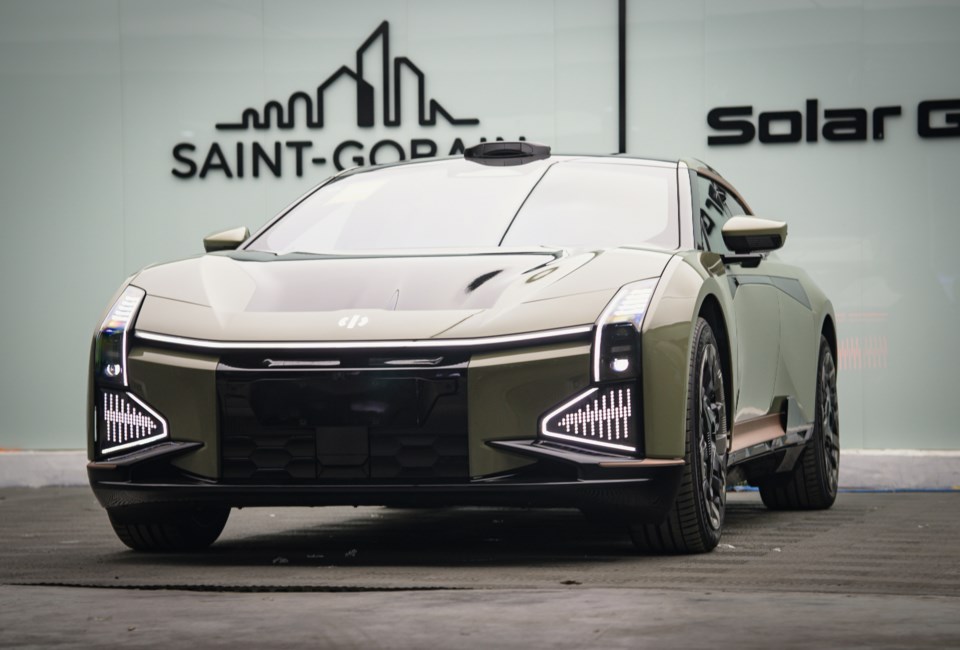The B.C. government has great ambitions to lead Canada in the adoption of electric vehicle (EV) sales, but those plans are about to run smack into softening demand, international tariff battles and a shortage of electricity.
Under its CleanBC plan and Zero-Emission Vehicle Act, the provincial government has laid out an ambitious plan to transition away from traditional gas-powered cars by mandating that by 2030, nine out of 10 light-duty vehicles sold in B.C. are zero-emission vehicles. That percentage is scheduled to increase to 100 per cent by 2035.
CleanBC is a dramatically ambitious plan, and the province is already leading Canada in the transition toward EVs, which accounted for more than of new electric vehicle sales across the country in 2023.
However, the trends and affairs of national and foreign governments are going to seriously challenge B.C.’s plans.
Large inventories of EVs currently sit on car dealer lots across B.C. According to AutoTrader.ca, nearly 5,000 EVs were put up for sale in B.C. during the week of May 13, 2024. In that same time period in 2023, the number was just 801.
The surge in EV inventories was the result of the auto sector’s post-pandemic rebound and the normalization of supply chains, but it is also the result of softening demand.
Throughout Canada, interest in buying EVs has declined. Just of Canadians who don’t own an EV are still interested in purchasing one, compared to 68 per cent who were eager to do so in 2022. In B.C., the trend is less pronounced, with 57 per cent of people here still interested, likely due to the incentives regime put forward by the provincial government.
However, European countries like Germany have seen their own new EV registrations plummet by nearly this July compared to last year, according to Bloomberg. Volkswagen, one of the world’s biggest automakers, is now mulling whether or not to a factory for the first time in its history in-part due to falling demand in not only Europe but also China.
Once hungry for German vehicles, local Chinese auto manufacturers are the EV market there at the expense of Volkswagen. Compounding this is the soaring cost of energy in the EU due to the war in Ukraine, which has caused electricity prices to jump. Meanwhile, the EU’s own tariffs of 20-per-cent to 38-per-cent on Chinese EV manufacturers, which account for eight per cent of EV sales in the EU, have not helped.
B.C. must take note.
Last month, Ottawa announced that it would slap a 100-per-cent tariff on every imported EV that is manufactured in China. That tax will come into effect less than a month from now, on October 1. Canada follows the United States, which implemented its own 100-per-cent tariff on Chinese EVs earlier this year.
The tariffs are reasonably aimed at countering the Chinese government’s demonstrably unfair trade practices, such as state-directed overcapacity. However, the side effects of the tariffs could sharply drive up the cost of EVs for Canadian consumers in the near future, with B.C. set to suffer the worst effects.
Chinese EV manufacturers like BYD can produce EVs at a far cheaper cost than their European or American competitors, giving them a clear advantage in markets where all participate. BYD passenger cars are currently not sold in North America, but more familiar companies like Volvo are very popular in B.C.
The Polestar 2, for example, is produced by Volvo and its Chinese parent company Zhejiang Geely Holding Group. Under Canada’s EV tariff policy, its price could double to $148,000 or more from its initial price of $74,000, which is costly enough for the average middle-class Canadian.
Volvo has already of its EX30 model to North America due to the United States’ tariffs, according to a Bloomberg report.
B.C. has done a stellar job of incentivizing EV sales by offering cheap energy at charging stations and EV rebates, which have helped the province become Canada’s leader in EV sales. A curtailing of the supply and variety of EVs will negatively affect that trend.
Falling demand due to real-world changes in the EV market could result in B.C. EV inventory glut as potential buyers turn away from electric options.
It should be made clear that Canada has good reasons to impose tariffs on Chinese-made EVs and that B.C.’s EV goals are laudatory. However, those two initiatives may be on a hard collision course in the coming months.
That is to say nothing about the province’s lack of the necessary energy required for a full transition to EVs, with a study from the Vancouver-based Energy Futures Institute that B.C. currently lacks the charging stations and capacity to meet the government’s EV goals.
In any case, the province needs to seriously consider adjusting its CleanBC program when it comes to EVs.
Geoff Russ is a policy analyst with Resource Works and a columnist in Vancouver. He is a former journalist with The Hub.




